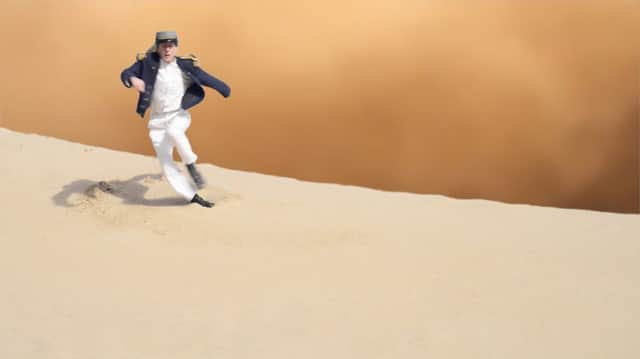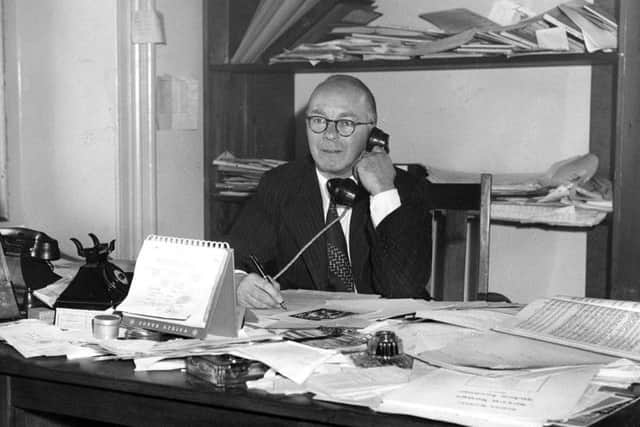Ken Walton: Innovation abounds in the Cottier Chamber Project’s festival


It’s also the CCP’s first year as an independent festival. “We’re not part of the West End Festival any more,” artistic director Andy Saunders says. “Their focus is on fringe and community events, it made sense for us to focus on ours. But we’re still collaborating.”
Indeed, there’s a sense of continuity in the extension of last year’s integrated Shostakovich theme – a string of concerts runs through the main programme, each featuring a Shostakovich string quartet alongside works by other composers of the various performers’ choosing, from Carl Nielsen to Sally Beamish.
Advertisement
Hide AdAnd there’s the usual presence of new works, from the winner of this year’s Cottier Composition Competiton, Claire McCue (Beauty and the Beastie, a work about midges for string quartet) to upcoming Ayrshire composer Jay Capperauld, veteran Icelander Hafliði Hallgrímsson and Scots traditional musician Rufus Huggan – his reconstruction of lost traditional music links will enable the first staging in almost 40 years of pioneering Scots composer Thomas Wilson’s dance piece, The Embers of Glencoe.


There’s an impressive list of performers, too, from Scots pianist Susan Tomes, the Maxwell String Quartet and house band Daniel’s Beard, to horn virtuoso Alec Frank-Gemmill and the mouthwatering duo of violinist James Ehnes and pianist Steven Osborne, who will perform together for the first time.
How did founder and artistic director Andy Saunders manage to entice that last celebrity pairing? “I just phone and ask people and so far they’ve all said yes,” he explains. It so happened that Osborne and Ehnes were looking for an opportunity to “warm up” their double act for a programme the following day at the Wigmore Hall, so Saunders’ opportunism paid off.
That is exactly the approach a certain Erik Chisholm used when he ran his radical Active Society for the Propagation of New Music in Glasgow in the 1930s, chancing his arm with invitations to Bartók, Walton, Hindemith and many more, all of whom said yes.
One of the most significant concerts in this year’s Cottier programme is a staging of Chisholm’s opera Simoon, which was only ever performed in New York in 1953, and even then not in its orchestrated form. This new production by Music Co-OPERAtive Scotland – an initiative formed by members of the Scottish Opera Orchestra to offset its part-time activity with Scottish Opera – will be nothing less than a world premiere of the fully-scored version.
It’s a symbolic year for Chisholm, who died half a century ago. His activities in Glasgow were both legendary and maverick, his Active Society effectively a two-fingered salute at the more conservatively-minded Glasgow musical establishment. He even annoyed the British establishment by mounting the first-ever UK staged production – by the semi-professional Glasgow Grand Opera – of Berlioz’s The Trojans, prompting a sneering Sir Thomas Beecham to label him a “whippersnapper”.
Advertisement
Hide AdIn 1947, Chisholm left Scotland to take up the chair of music at the University of Cape Town, where he established a new opera company. As a composer whose music is coloured by influences ranging from Scottish pibroch to Indian ragas, he completed nine operas in a compositional output that extends to over 100 works.
Simoon was his second chamber opera, based on an 1889 August Strindberg play, which not only demonstrates Chisholm’s love of the exotic, but also reveals his then-affinity for the less astringent style of atonal modernism espoused in Berg’s Wozzeck. “The music style is roughly Wosseck-ish”, he stated in a letter of 1952.
Advertisement
Hide AdThe story is a psychological murder thriller set in the Algerian desert, in which the suffocating desert wind – the simoon – plays a symbolic role. For practical reasons, Saunders ditched his original plans to have it fully staged. “The practicalities of creating that for just this one-off performance were getting ridiculous, so I approached a filmmaker instead to see what the possibilities were there,” he says.
He identified Roddy Simpson, a dance filmmaker. “I said to him: ‘here’s the libretto; the music only exists on paper; there’s no recording; could you make a film please?” Simpson accepted the challenge, and has created a purely visual film backdrop, mainly black and white, that features two dancers and two silent actors. “It’s supposed to be set in the Sahara, but since our budget didn’t extend to shooting on location, we’ve used a beach double in East Lothian,” Saunders reveals.
The performance, on 8 June, takes place in Glasgow’s historic Western Baths, and features a live cast of Jane Irwin, Philip Sheffield, Damian Thantrey, and rising RCS soprano Charlie Drummond, under the baton of Ian Ryan.
The ambition is symbolic of the vision that has established the Cottier Chamber Project as a major force in the Scottish cultural calendar. Every year sees something new and unexpected, which is then built on and developed, like last year’s lunchtime Bach series at the Hunterian Art Gallery.
“We only expected about 40 people to attend that, but it was such a hit I had to go to IKEA and buy 100 flat pack stools to accommodate the audience,” says Saunders. This year, the midday theme is Lunchtime Lieder, and the series has been moved to the larger Hunterian Museum.
The odds are that it’ll once again be standing room only.
The Cottier Chamber Project runs from 5-26 June in various venues in Glasgow, www.cottierchamberproject.com